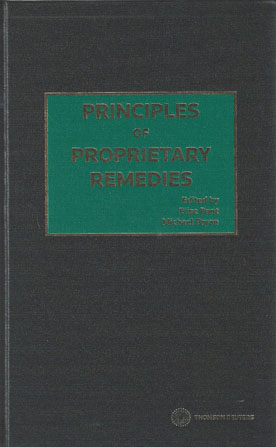
Recent years have seen many significant cases decided across the common law world in which courts have directly grappled with important and difficult issues concerning proprietary remedies (such as the constructive trust, rescission and liens) awarded in response to common law and equitable wrongdoing, and to events of unjust enrichment.
The decisions have often been made virtually contemporaneously, in jurisdictions sharing common legal traditions, and yet have taken significantly divergent positions on core issues of principle.
In that context, this collection represents the timely culmination of a four-year Australian Research Council Discovery project led by the editors to identify and explore the principles that guide the award of proprietary relief.
It contains strongly comparative essays by leading Australian judges and scholars that address underlying questions of legal taxonomy and the rationales for proprietary relief, as well as examine the award of proprietary relief in particular categories of cases including claims of breach of fiduciary duty, theft, fraud, accessorial breaches, estoppel and unjust enrichment.
The collection also contains a succinct synopsis of the editors’ research conclusions arising from the project as a whole, which seeks to provide a coherent model to guide and inform scholarly and judicial reflection on the developing law of proprietary relief both in Australia and internationally.
This work will be of profound interest for all practitioners, barristers, judges and scholars working in this complex and often seemingly incoherent field, and provides an innovative and accessible approach to the area for all students of the law.